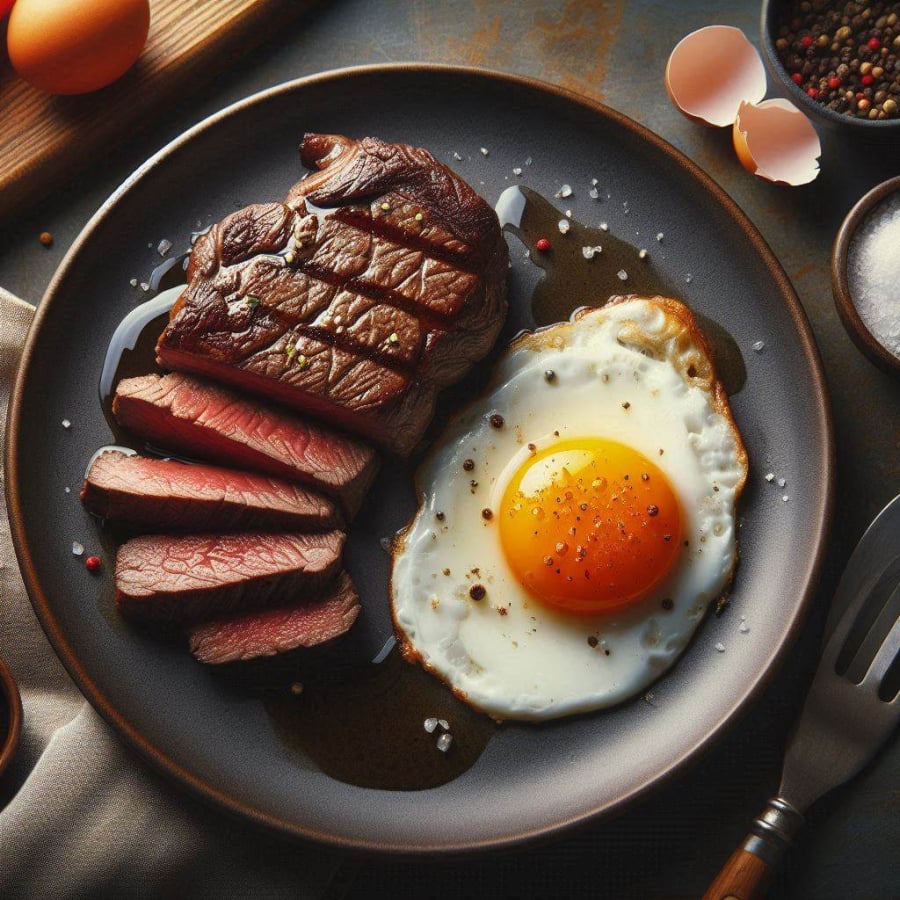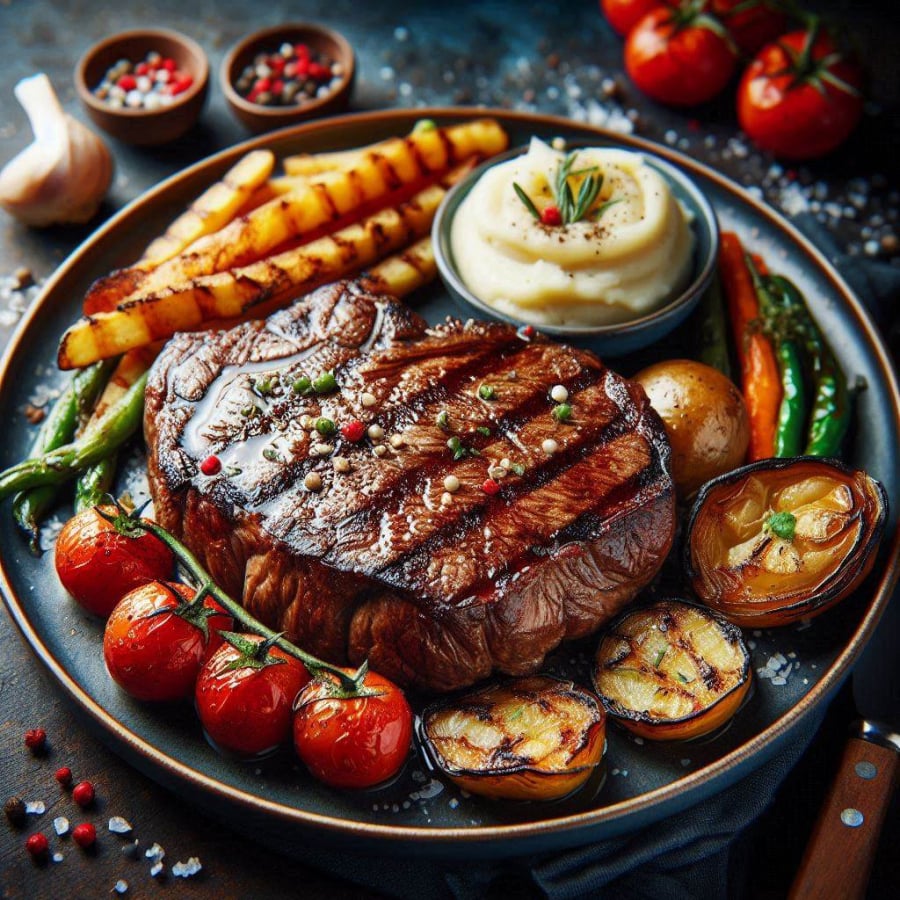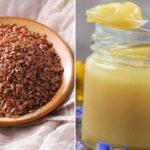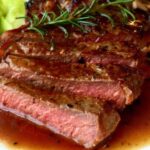Beef is an incredibly nutritious food, packed with protein and iron, offering a myriad of health benefits. However, it is not always advisable to pair beef with just any other food. Combining beef with certain incompatible foods can lead to serious digestive issues and diminish the nutritional value of the meal.
What Should Not Be Eaten With Beef?
Eggs
Both beef and eggs are excellent sources of protein, providing abundant energy for the body. However, consuming these two protein-rich foods together in the same meal can overwhelm your digestive system. The complex proteins present in both beef and eggs require your body to work harder to digest them, potentially leading to feelings of fullness, indigestion, or stomach aches.
Additionally, the competition for nutrient absorption between beef and eggs may result in suboptimal nutrient utilization. Regularly pairing eggs with beef can increase the risk of digestive disorders and nutrient deficiencies.
To optimize digestion, it is advisable to separate the consumption of these two foods. For instance, consider having eggs for breakfast and beef for lunch or dinner, thus reducing the burden on your digestive system.

Beef and eggs are both protein-rich foods, providing abundant energy.
Soy
Soy, along with soy-based products like soy milk, tofu, and soy sauce, is a great source of plant-based protein. When combined with animal protein from beef, their differing molecular structures can make it challenging for the body to absorb the maximum nutrients.
Moreover, soy contains small amounts of phytate, an anti-nutrient that can inhibit the absorption of certain minerals, especially iron. This can reduce the effectiveness of iron supplementation from beef. For individuals with sensitive digestion, this combination may lead to symptoms like bloating, indigestion, and metabolic imbalances.
To make the most of the benefits offered by both foods, consume them in separate meals. For example, enjoy beef as your main meal and incorporate soy products as snacks throughout the day.
Persimmons
Persimmons are fruits rich in tannins and pectin, which easily combine with the protein in beef, forming compounds that can hinder digestion. Consuming beef with persimmons may result in symptoms like bloating and indigestion. If this occurs frequently, these compounds can lead to the formation of stomach stones.
Furthermore, the tannins in persimmons, when exposed to stomach acids, can enhance precipitation, leading to more severe digestive disorders. If you consume protein-rich beef, your body will struggle to digest it, leaving you feeling tired and heavy all day.
Therefore, after eating beef, it is advisable to wait at least 2-3 hours before enjoying persimmons. Or, if possible, avoid combining these two foods altogether to safeguard your digestive health.

Wait at least 2-3 hours after eating beef before enjoying persimmons.
Green Tea
Green tea is renowned not only for its antioxidant properties but also as a fantastic health-supporting beverage. However, consuming green tea immediately after eating beef may lead to some undesirable side effects.
Green tea contains significant amounts of tannic acid, a compound that can combine with the iron in beef, forming a substance that the body finds difficult to absorb. Consequently, the body loses its ability to utilize the iron from beef, reducing the nutritional value of the meal.
This is especially critical for individuals suffering from anemia or those in need of iron supplementation. Additionally, drinking green tea during or immediately after a meal can cause stomach discomfort or bloating, as the tannins in the tea may irritate the stomach lining when combined with beef protein.
To ensure optimal nutrient absorption, refrain from drinking green tea for at least 1-2 hours after a meal. Instead, opt for water or fresh fruit juices to aid digestion post-meal.
Who Should Refrain From Consuming Beef?
In addition to avoiding certain food combinations with beef, some individuals should be cautious about their beef consumption to safeguard their health.
Individuals with Gout
Gout is a type of arthritis caused by the buildup of uric acid in the body, often affecting the joints. Beef contains purines, which can be converted into uric acid during digestion. Therefore, consuming high levels of purines by eating beef can increase uric acid levels in the blood, exacerbating gout and leading to intense joint pain. Consequently, individuals with gout should steer clear of beef to prevent worsening their condition. Instead, they can opt for white meats like chicken or fish, which are safer for their health and do not increase the risk of gout flares.

Beef contains purines, which can be converted into uric acid, exacerbating gout.
Individuals with a “Hot” Body Constitution
Beef is known to have a heating effect, meaning that consuming it can increase body temperature. For individuals with a body constitution that is prone to heat, eating beef may lead to symptoms such as boils, skin inflammation, or mouth ulcers.
Moreover, beef contains relatively high amounts of fat, which can further elevate body temperature and impair temperature regulation. Therefore, for those with a tendency towards a “hot” body constitution, it is essential to limit beef consumption.
Individuals Allergic to Beef
Food allergies occur when the immune system overreacts to proteins found in certain foods. While beef is a popular food, some individuals may experience allergic reactions to the proteins it contains. Symptoms can include rashes, itching, swelling of the lips or throat, respiratory difficulties, and, in severe cases, anaphylaxis, which is a life-threatening condition.
If you experience an allergic reaction after consuming beef, stop immediately and seek medical advice for testing and treatment. Additionally, always read ingredient labels carefully on processed foods to ensure you avoid exposure to beef.
Individuals with Liver or Kidney Conditions
For individuals with liver or kidney diseases, the high levels of protein and fat in beef can place additional strain on these organs. When consuming beef, the body has to work harder to digest and metabolize these components, while also producing more waste products. This increases the workload on the liver and kidneys, especially if kidney function is already compromised. In such cases, the kidneys may struggle to eliminate toxins effectively, potentially worsening the condition.
Therefore, to protect their health, patients with liver and kidney diseases should minimize their consumption of animal protein and opt for plant-based proteins like soy, tofu, or fish, thus ensuring nutritional balance without overburdening their organs.
The Perfect Steak: Restaurant Quality at Home
With this mouth-watering steak recipe, you’ll be able to create a restaurant-worthy dish that will impress any foodie. This easy-to-follow guide will ensure a tender, juicy steak that’s packed with flavor. It’s a simple way to elevate your cooking skills and treat your taste buds to a culinary delight.
10 Superfoods to Prevent Hair Loss and Stimulate Growth: Secrets of Asian Beauty Icons
Introducing a simple way to boost your hair’s health and vitality – from the inside out. Incorporating these foods into your diet is an easy and effective way to nourish your locks, prevent hair loss, and stimulate hair growth. With a variety of nutrient-rich options, you can give your hair the love and care it deserves.



































